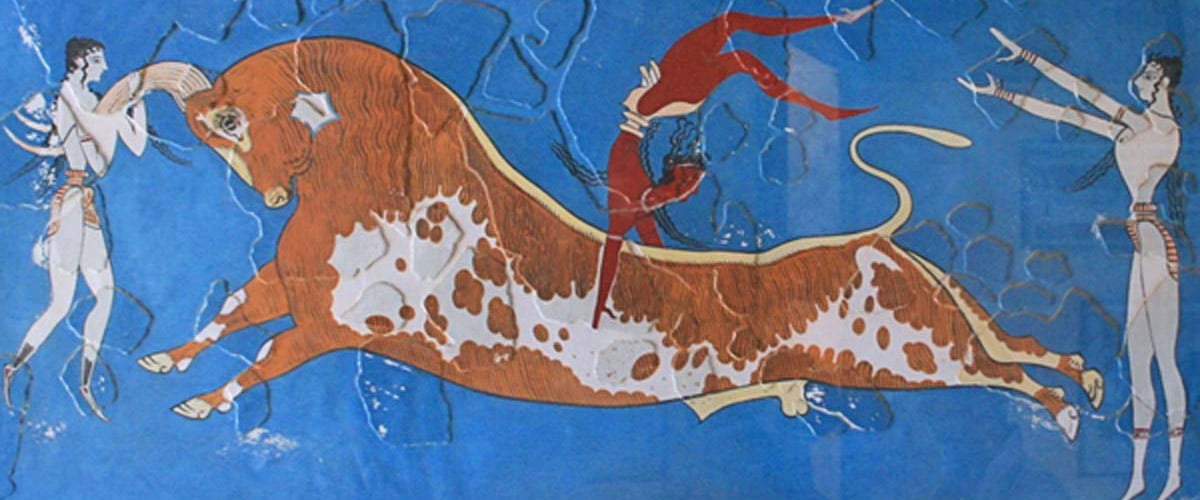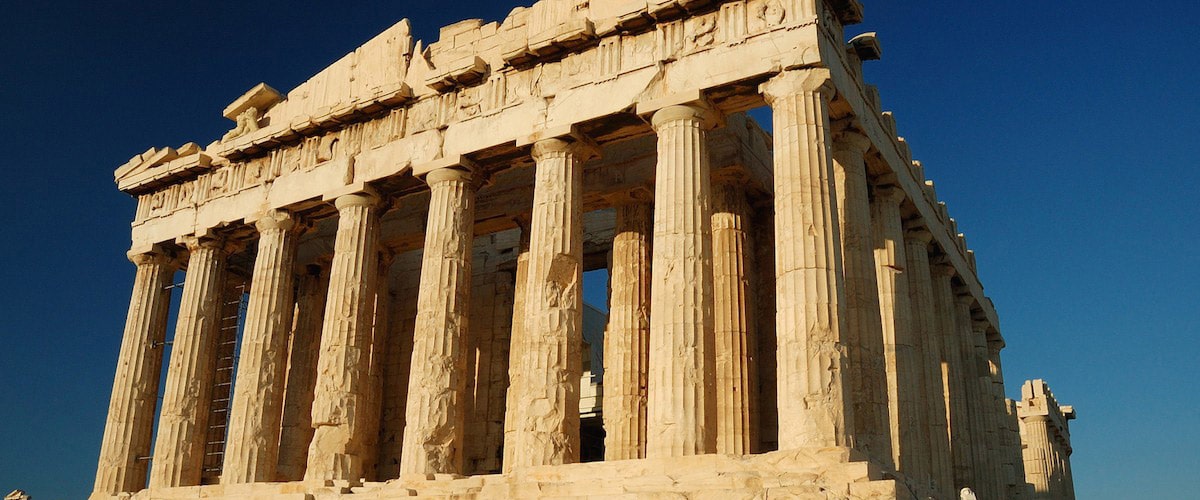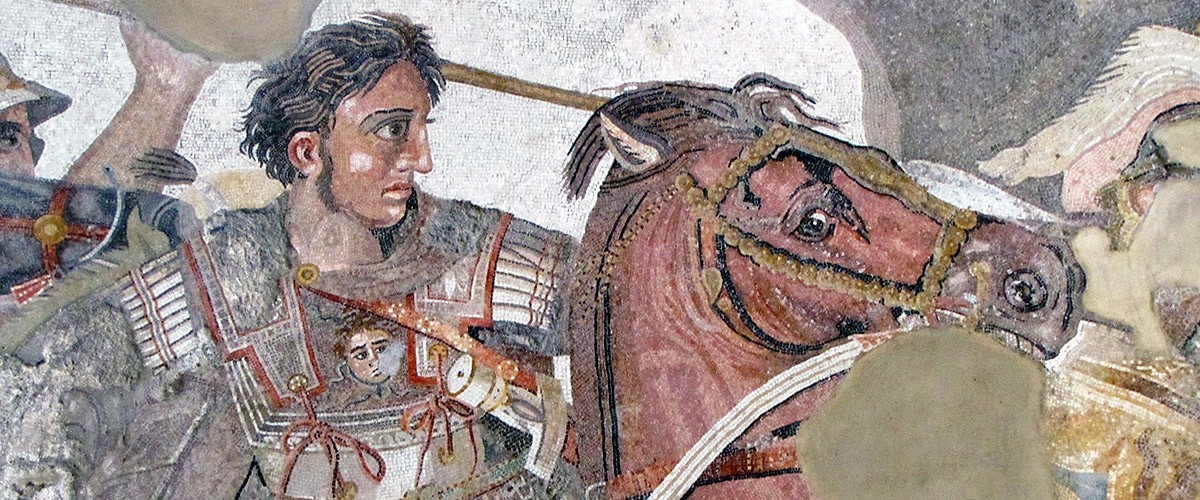When historians talk about ancient Greece they usually refer to the perod that starts with prehistoric Greece (late 3rd millennium BC) and lasts until the Roman rule (4th century AD).
In the 3rd millenium BC Neolithic settlements started being built in several places throughout Europe. One of the first Neolithic settlements in Europe was discovered in Sesklo, (that’s in the Volos area, in central Greece). Historians and archaelogists estimate (based on its size) that this Neolithic settlement in its peak period – around 5000 BC – had a population of around 5,000 people linving in 500-800 houses. The first settlements show advanced agriculture and very early use of pottery that rivals in age those of the Near East.
The peoples of Sesklo grew wheat and barley, kept herds of mainly sheep and goats, and they most likely also had cows, pigs, and dogs. Their houses were small, with one or two rooms each, and they were built of wood or mudbrick. Later, with advances in the the construction technique, all homes are built of adobe with stone foundations. The first houses in that area with two levels are found to have been built in the 6th millennium BC, which shows a clear intentional urbanism.
The Greek Neolithic era ended with the arrival of the Bronze Age by the end of the 28th century BC. In about 2100 BC the Mycenaeans introduced the Greek language to present-day Greece. Around the same time (2000BC – 1450BC) the Minoan civilization was flourishing in Crete. The Mycenean invasion of around 1400 BC spelled the end of the Minoan civilization.
Mycenean Greece (Mycenean civilization) started with the end of the Minoan civilization, with arrival of the Greeks in the Aegean around 1400-1600 BC, to the collapse of their Bronze Age civilization around 1100 BC. This historical period provides the historical setting of the epics of Homer and of most Greek mythology. The Mycenaean period takes its name from the archaeological site of Mycenae in Peloponnesos (southern Greece). Athens, Pylos, Thebes, and Tiryns are also important Mycenaean sites. The Mycenaean civilization was dominated by a warrior aristocracy.
The Greek Dark Ages (roughly 1100 BC-800 BC) follows the Mycenean Greece and refers to the period of Greek history from the Dorian invasion and end of the Mycenaean civilization in the 1100 BC to the rise of the first Greek city-states in the 900 BC and the epics of Homer and earliest writings in alphabetic Greek in or around the 800 BC.
The collapse of the Mycenaean civilization coincided with the fall of several other large empires in the near east, most notably the Hittite and the Egyptian civilizations.
Following the Dark Ages, the Greek civilization was engulfed in a renaissance that spread the Greek world as far as the Black Sea and Spain. This era is known to us as Classical Greece. Even though this period of Greek history is very short (it only lasted roughly 200 years from the 500 BC through 400 BC) it’s considered by most historians to be the one which shaped the Western world as we know it today.
Athens and Sparta dominated mainland Greece during that period and led the Greeks to two glorious victories against the Persians. One in Marathon in 490 BC and a second one in Thermopylae (immortalized by the movie 300), Salamis and Plataea a decade later. This is the time when the Parthenon was built on the Acropolis of Athens (construction completed in 438 BC) and Athens experienced a “golden age”. All the well-known philosophers, artists, sculptors and playwrights (Aeschylus, Sophocles, Euripides, Pheidias, Socrates, Plato, Aristotle and others) lived and worked in Athens during the period we now call “Classical Greece”.
Classical Greece was followed by Hellenistic Greece. What historians call “Hellenistic Greece” is the the world left behind by Alexander the Great and his successful wars against the Persians. During this time the Greek culture and language were spread throughout Asia Minor, Middle East and parts of Africa.
The end of the Hellenistic era came at the Battle of Actium in 31 BC, when Augustus defeated the Greek Ptolemaic queen Cleopatra VII and Mark Antony, taking over Alexandria, the last great center of Hellenistic Greece.
In the following years after this event, mainland Greece was conquered by the Romans. However, the conquest of Greece by the Romans did not diminish the Greek cultural influence in the Mediterranean and Middle East, and to the Romans themselves. If anything it reinforced it and spread the Greek culture even further.




